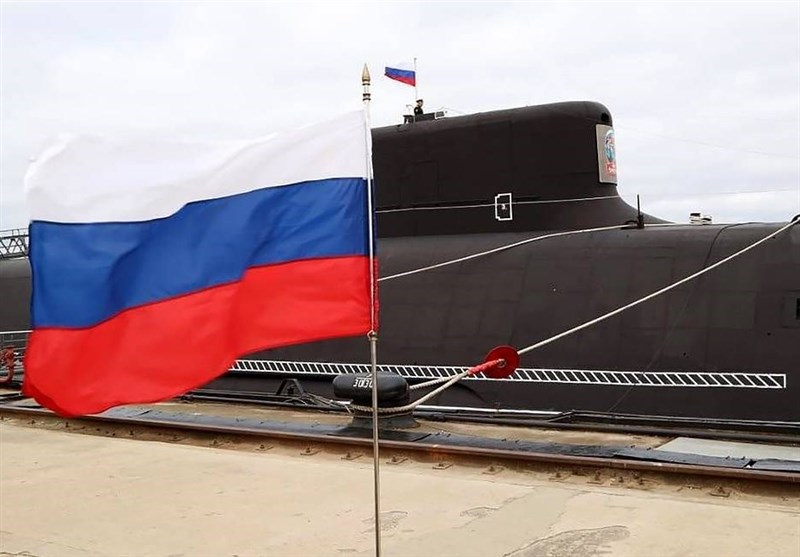Russia has launched its new nuclear submarine at a time that it has stepped up its nuclear-related activities recently. The latest move in this regard was the issuance of a presidential decree termed “Basic Principles of State Policy of the Russian Federation on Nuclear Deterrence”, which is an important step in Russia’s military activities; Although the Russian Nuclear Deterrence document was first drafted in 2010, it was never made public and was only cited in the 2014 Military Doctrine.
Although the Russian president’s nuclear decree was entirely defensive and deterrent, the country’s red lines on nuclear activities along the border, as well as the threats posed by it, set out the Russian Federation’s use of nuclear weapons. Accordingly, Russia has expanded its activities in the field of nuclear deterrence in order to disseminate the “Basic Principles of State Policy of the Russian Federation on Nuclear Deterrence” which includes the launch of the “Prince Vladimir” submarine.
It should not be forgotten that nuclear weapons play an important role in Russia’s defense-military strategy and deterrence policy. Although Vladimir Putin declared Russia’s “unconditional” readiness in December 2019 to extend the agreement to reduce nuclear arsenals but he devoted a major part of his annual address (March 2018) at the Federal Assembly to Russia’s new weapons which contained important points. “A low-flying, low-visibility cruise missile armed with a nuclear warhead and possessing a practically unlimited range, unpredictable flight path and the capability to impregnate practically all interception lines is invulnerable to all existing and future anti-missile and air defense weapons,” Putin said, adding that the missile was successfully tested late last year. The underwater drone is capable of operating at “very extreme depths covering intercontinental distances” at speeds much faster than current submarines, torpedoes and surface ships, Putin said.
Elsewhere in October 2018, the Russian President spoke about the consequences of a nuclear war. According to Putin, “As martyrs, we will go to heaven.” He added, “And they [the West] will just croak because they won’t even have time to repent.”
Putin’s remarks show that nuclear power plays a very important role in the country’s defense strategy, and that the Russians have no hesitation in expressing their capabilities in this regard. Especially since 2014, with the Ukraine crisis and the annexation of the Crimean peninsula to Russia, a new round of nuclear competition has begun between Moscow and Washington.
While Russia has always been ready to counter the deployment of US forces in the Baltic states, the United States has claimed that Russia has long acquired “miniature” nuclear weapons. For this reason, the United States intends to take similar action, thereby eliminating the imbalance in the nuclear deterrence system. In this regard, Washington is installing small nuclear warheads on ballistic missiles in its submarines to counter Moscow. On February 4, 2020, the Pentagon announced that it was equipping ballistic cruise missiles with “relatively small nuclear warheads” and relatively low explosive power.
The new Nuclear 2-6 warhead, mounted on the United States Navy’s Trident 2 ballistic missiles, has an explosive power of five to seven tons of TNT. The move in Moscow was seen as a dangerous move against Russia’s ability to develop nuclear weapons, and made the Kremlin more determined to launch Prince Vladimir submarine than ever before.
Nuclear competition between Russia and the United States is growing as the foundations of the world’s arms control system are virtually shaken. With the withdrawal from the anti-ballistic missile treaty, the ban on intermediate-range nuclear missiles and the open skies agreement, the United States has not only affected its relations with Russia, but has also made the world more vulnerable to controlling weapons of mass destruction. This is under conditions that the Strategic Arms Reduction Treaty (START) treaty also expires on February 5, 2021, and despite Russia’s insistence that it is ready to negotiate, the Americans have not yet given a clear answer.
Therefore, there is a possibility that the US procedure for restricting arms containing deals could apply to START too and the United States may refrain from extending the accord. Disagreement over the START means the end of the last remaining Russia-US arms control deal. Under such circumstances, Russia has no choice but to strengthen its nuclear weapons to effectively deter the United States; Because the Russians are well aware that they have little chance of winning over their rivals (the United States) in a conventional arms race and that the events of the Star Wars may be repeated.










0 Comments